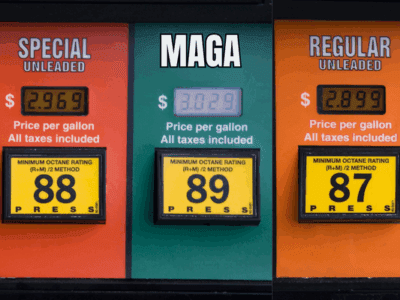Is Trump’s California Climate Tantrum Bad Politics?
Here’s hoping so
Apparently it hasn’t been enough for the Trump Administration to roll back federal climate pollution standards for cars and power plants, announce its intent to withdraw from the Paris Agreement, promote coal usage even in the face of contrary market forces, and embrace expanded oil and gas drilling on public lands. As my colleague Ann Carlson describes in a blog post today, the federal government is also now in a full-blown war against the ability of states to tackle climate change. Call it Trump’s “Anything I won’t do, you can’t do either” approach to federalism and climate.
One front in that war is EPA’s recent and unprecedented decision to revoke California’s ability to create and enforce its own climate pollution standards for cars. A second front opened this morning, when the federal government filed suit attacking as unconstitutional California’s landmark cap-and-trade program to reduce greenhouse gas emissions. The feds are arguing that California’s coordination with Quebec renders that program unlawful as a usurpation of federal foreign-affairs powers.
Ann’s post has a good rundown of the legal issues. I’ll just note in addition, as someone who has watched California develop its cap-and-trade program from its initial phases, that many good lawyers have been aware of these constitutional bounds from the get-go and have designed California’s program and its relationship with Quebec with these principles well in mind.
For now, I’m more struck by (what I hope is) the potential political overreach of these anti-state efforts. The politics around climate action have shifted, as a recent Washington Post article notes. More independents and Republicans than ever understand that climate change is a crisis requiring serious responses, and many of them are unhappy with Trump’s handling of climate change. Here are some key grafs from that WaPo piece:
For Trump, climate change also could prove to be an issue, even among his GOP base. Though Democrats and independents are more likely to think climate change is caused by human activity, a majority of Republicans — 60 percent — say they, too, believe that, the Post-KFF survey finds. And 23 percent of Republicans say they disapprove of how Trump is handling the issue, compared with just 9 percent of Republicans who disapprove of his job performance overall. . . .
Those surveyed gave Trump’s handling of climate change the highest level of disapproval among six issues measured in the Post-KFF poll, with 67 percent saying they are unhappy with the president’s performance.
In the context of today’s lawsuit, it’s also worth noting that independents and Republicans tend to oppose, and even resent, Federal constraints on state and local powers.
Ever since the passage of AB32 in California, 2020 has been a key year in the march toward climate progress–and today more than ever.







Reader Comments